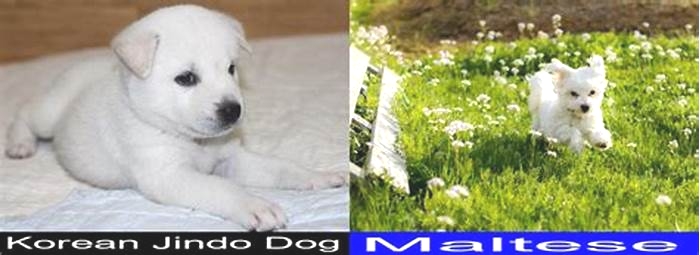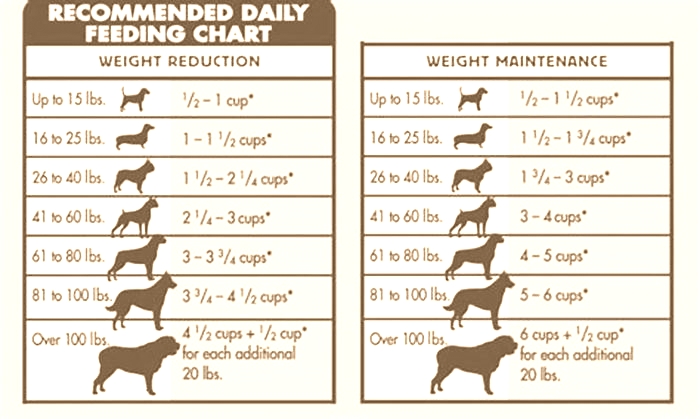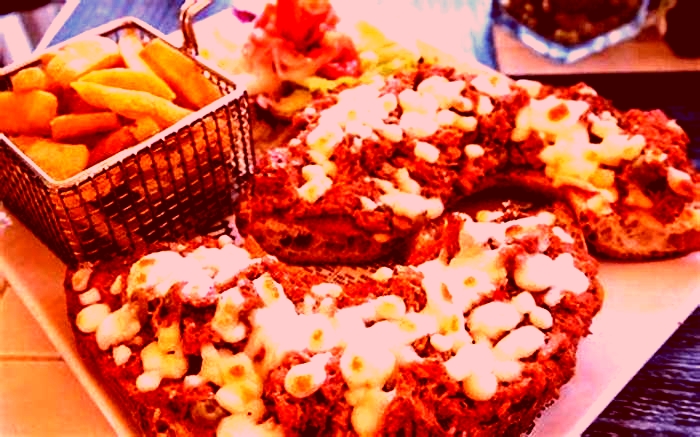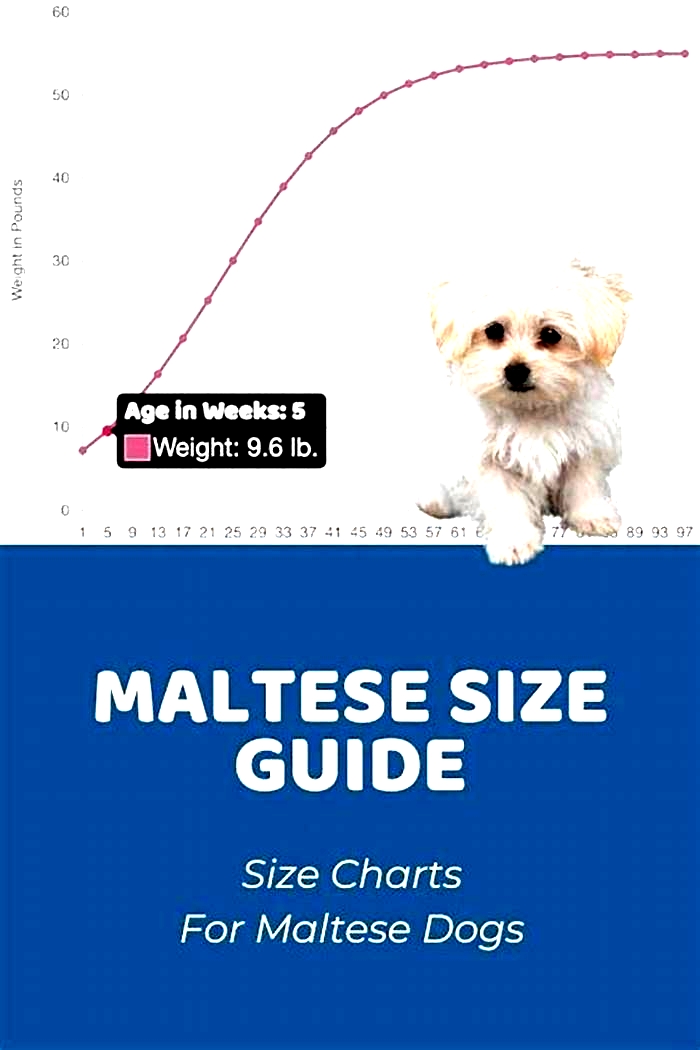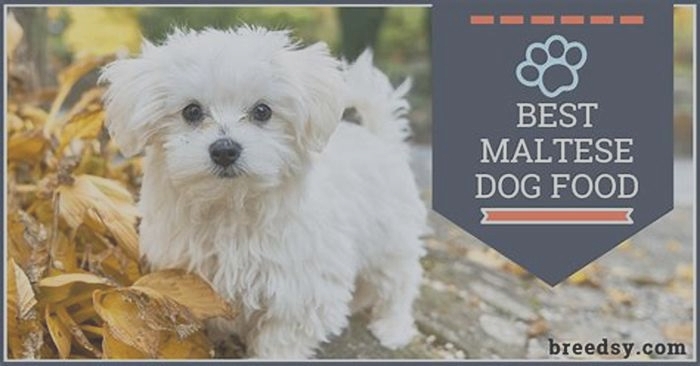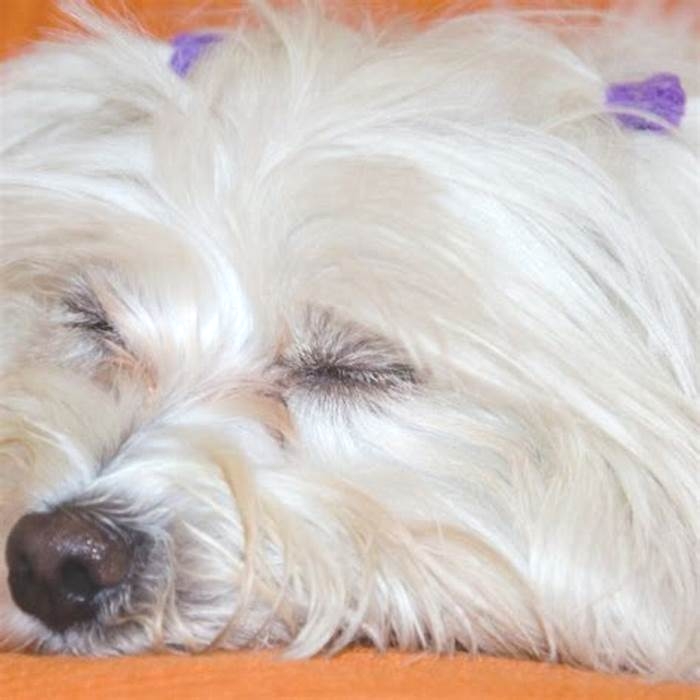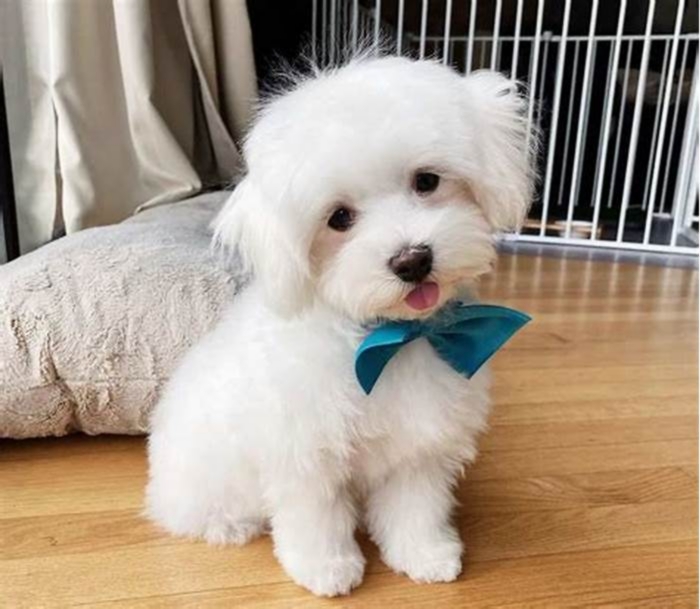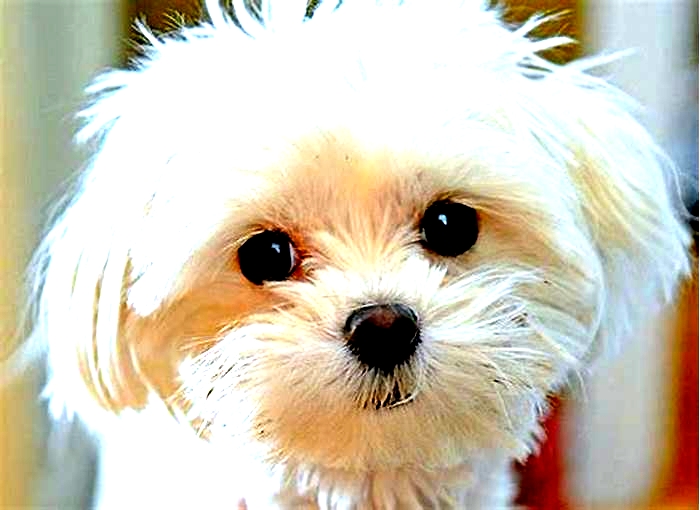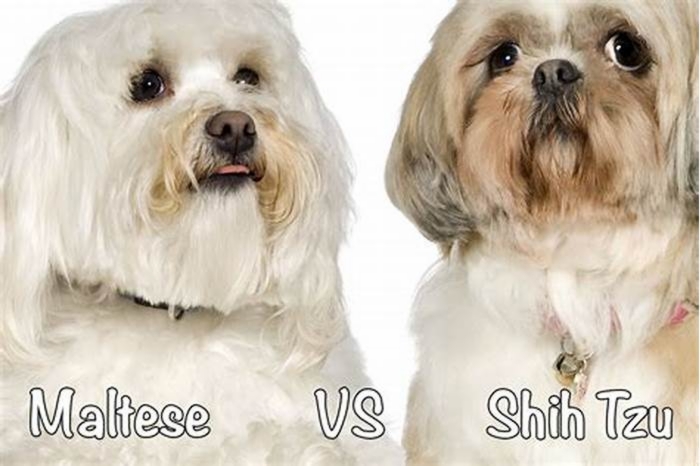Are Maltese friendly with strangers
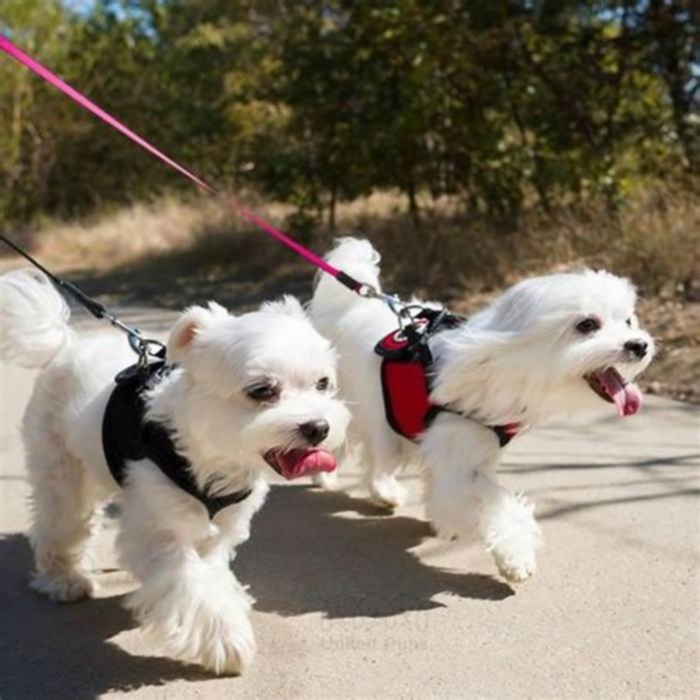
New Faces, New Friends: Socializing Your Maltese with Strangers
Socializing your Maltese puppy with strangers is essential for fostering confidence and ensuring they grow up to be friendly and sociable dogs. Starting the socialization process early, around 8 to 12 weeks of age, allows your puppy to gradually become familiar with new environments, sounds, and situations. Positive reinforcement, such as treats and praise, plays a vital role in rewarding your puppys positive reactions to new experiences. It is important to expose them to various kinds of people and other dogs, as well as different settings and sounds. Regular handling, attending puppy classes, and socializing with other pets are also beneficial in developing their social skills. While its important to protect your puppy, remember to avoid overprotecting them, neglecting early socialization, and using negative reinforcement. Seeking expert advice and enrolling in puppy obedience training programs can provide additional support for effectively socializing your Maltese puppy. Remember, training is a process that may take 1 to 8 weeks, and consistency is key to success.
Key Takeaways:
- Start socializing your Maltese puppy early, between 8 to 12 weeks of age.
- Gradually expose your puppy to new environments, sounds, and situations.
- Use positive reinforcement, such as treats and praise, to reward positive reactions to new experiences.
- Expose your puppy to various kinds of people and other dogs to develop their social skills.
- Regular handling, attending puppy classes, and socializing with other pets are beneficial for socialization.
Why Early Socialization Matters
Early socialization plays a crucial role in shaping the behavior of your Maltese puppy, making them adaptable and less likely to exhibit fear or aggression towards strangers. It is recommended to start the socialization process as early as 8 to 12 weeks of age, when puppies are most receptive to new experiences and learning.
To ensure your Maltese puppy becomes a confident and well-rounded adult dog, it is important to gradually introduce them to new environments, sounds, and situations. Exposing them to different settings helps them become accustomed to various situations they may encounter in their daily lives.
During the socialization process, positive reinforcement is key in encouraging positive reactions and behaviors. By using treats and praise, you can reward your puppy for their brave and confident response to new experiences, reinforcing their willingness to engage with strangers and their surroundings. That means also dont be to hard on your Maltese when he starts running or humping. This is all normal behavior for a puppy.
Additionally, it is important to expose your Maltese puppy to various kinds of people and other dogs. Regular interactions with individuals of different ages, appearances, and temperaments, as well as friendly encounters with other dogs, will help in developing their social skills and creating positive associations with different beings.
Summary:
- Early socialization is crucial for shaping the behavior of Maltese puppies.
- Start the process at 8 to 12 weeks of age and gradually introduce them to new environments and situations.
- Positive reinforcement, such as treats and praise, is important for rewarding positive reactions.
- Expose the puppy to various people and other dogs to develop their social skills.
| Benefits of Early Socialization: |
|---|
| Adaptability to new environments and situations |
| Reduced fear and aggression towards strangers |
| Increased confidence and well-roundedness |
Introducing New Environments and Sounds
To foster socialization skills in your Maltese puppy, it is vital to gradually introduce them to new environments and sounds, allowing them to become familiar and comfortable in various settings. This exposure helps them develop confidence and adaptability, making them well-rounded and friendly adult dogs.
Start by taking your Maltese puppy on short outings to different places, such as parks, busy streets, or even pet-friendly stores. This allows them to experience different sights, smells, and sounds, helping them become accustomed to the variety of stimuli they may encounter in their daily lives.
During these outings, observe your puppys reaction to new sounds, such as car horns, sirens, or loud conversations. If they show signs of fear or anxiety, offer reassurance and comfort, but avoid coddling or overprotecting them. Instead, redirect their attention to something positive, like a favorite toy or treat, to help them associate new sounds with positive experiences.
| Tip: | Gradually expose your puppy to different sounds at home as well. Play recordings of various noises, such as doorbells, vacuum cleaners, or thunderstorms, at a low volume initially and gradually increase it over time. This helps them acclimate to different sounds in a controlled environment. |
|---|
Remember to keep the experiences positive and lighthearted. Use treats and praise to reward your puppy for calm and confident behavior when facing new environments and sounds. This reinforces their positive association with these situations and encourages them to approach new experiences with curiosity rather than fear.
Creating a Safe Space
In addition to introducing new environments and sounds, it is important to create a safe space for your Maltese puppy at home. This can be a designated area with comfortable bedding, toys, and familiar scents. Having a safe space provides them with a sense of security and allows them to retreat and relax when they feel overwhelmed or anxious.
Make sure your puppys safe space is easily accessible and that they can retreat to it whenever they need to. Avoid forcing them into new situations or overwhelming them with too many stimuli at once. Gradual exposure is key, allowing them to build confidence at their own pace.
By gradually introducing your Maltese puppy to new environments and sounds, you are helping them develop the socialization skills they need to navigate the world around them with confidence and ease. Remember to be patient, consistent, and positive throughout the process, and seek expert advice or enroll in a puppy obedience training program if you need additional guidance. Together, you and your Maltese puppy can embark on a journey of discovery and create a strong foundation for a lifetime of social interactions.
Positive Reinforcement and Rewards
Positive reinforcement through treats and praise is an effective method to encourage positive behaviors and build your Maltese puppys confidence when socializing with strangers. By rewarding your puppy for their good behavior, you can help them associate new experiences and interactions with positive outcomes.
When introducing your Maltese puppy to strangers, offer them a treat and praise when they approach and interact calmly. This not only reinforces their positive behavior, but it also helps them develop a positive association with meeting new people. Over time, your puppy will learn to approach strangers with confidence and trust.
Its important to use high-value treats that your puppy finds irresistible, as this will further motivate them to engage in positive behaviors. You can also incorporate verbal praise such as good boy/girl or a gentle pat on the head to reinforce their actions.
Using Treats Effectively
When using treats as a form of positive reinforcement, its essential to follow a few key principles. Firstly, ensure that your puppy earns the treat by exhibiting the desired behavior. This will help them understand that good behavior is rewarded.
Secondly, gradually reduce the frequency of treat rewards as your puppy becomes more comfortable with socializing. This will help them generalize the positive associations theyve developed and rely less on treats over time.
| Tips for Successful Positive Reinforcement |
|---|
| 1. Use small, soft treats that are easy to quickly consume. |
| 2. Vary the types of treats to keep your puppy engaged and interested. |
| 3. Be consistent and only reward behaviors that you wish to reinforce. |
| 4. Avoid using punishment or negative reinforcement, as this can hinder your puppys progress and trust. |
Remember, building your Maltese puppys confidence through positive reinforcement and rewards takes time and patience. By consistently rewarding their positive behaviors, you can help them develop into a well-socialized and friendly companion.
Exposing to Various Kinds of People and Dogs
Exposing your Maltese puppy to a diverse range of people and other dogs is essential for cultivating their social skills and promoting a friendly and outgoing demeanor. By allowing your puppy to interact with various individuals, you are helping them learn how to navigate different personalities and build confidence in social situations.
When introducing your Maltese puppy to new people, it is important to prioritize positive experiences. Encourage gentle interactions and provide treats and praise when your puppy shows curiosity or friendliness towards strangers. By doing so, you are reinforcing positive behaviors and building a strong foundation for future social interactions.
Similarly, socializing your Maltese puppy with other dogs is crucial for their overall development. Interactions with canine companions allow them to practice important social skills, such as proper play behavior and communication. It also helps them establish boundaries and learn to read other dogs body language.
| Benefits of Exposing Your Maltese Puppy to Various People and Dogs: |
|---|
| 1. Enhances socialization skills and confidence |
| 2. Promotes positive interactions and reduces fear or aggression |
| 3. Builds a well-rounded and friendly temperament |
| 4. Helps establish proper play behavior and canine communication |
Remember to introduce your Maltese puppy to different types of dogs and people, including those of various ages, sizes, and personalities. This will help them become comfortable in diverse environments and ensure that they can adapt well to any social situation they encounter in the future.
Tips for Successful Socialization:
- Gradually expose your puppy to new experiences, starting from a young age.
- Use positive reinforcement, such as treats and praise, to reward desirable behaviors.
- Supervise interactions with other dogs to ensure they remain positive and safe.
- Seek guidance from professional trainers or behaviorists if you encounter any challenges during the socialization process.
By prioritizing socialization and providing your Maltese puppy with opportunities to engage with various people and dogs, you are setting them up for a lifetime of positive social experiences and fostering their ability to be friendly and well-mannered companions.
Regular Handling and Puppy Classes
Regular handling and enrolling your Maltese puppy in puppy classes are effective ways to reinforce socialization skills, ensuring they become comfortable and well-behaved around strangers. Handling your puppy regularly helps them become accustomed to human touch and builds trust between you and your furry friend. It is important to handle them gently and provide positive reinforcement, such as treats and praise, during these sessions. Regular handling sessions also allow you to check their overall health and well-being, ensuring they are free of any discomfort or pain.
Attending puppy classes is another valuable aspect of socializing your Maltese. These classes provide a structured learning environment where your puppy can interact with other dogs and people under the guidance of a professional trainer. They learn basic obedience commands and proper behavior in a controlled setting. Puppy classes also expose your Maltese to various stimuli, sounds, and distractions, helping them become more adaptable and confident. It is important to choose a reputable puppy class that focuses on positive reinforcement techniques and provides a safe and clean environment for your puppy to learn and socialize.
Benefits of Regular Handling and Puppy Classes:
- Builds trust and strengthens the bond between you and your Maltese puppy
- Helps your puppy become comfortable with human touch and handling
- Provides an opportunity to check your puppys overall health and well-being
- Offers a structured learning environment for socialization with other dogs
- Exposes your puppy to various stimuli, sounds, and distractions
- Teaches basic obedience commands and proper behavior
- Instills confidence and adaptability in your Maltese
Remember, socializing your Maltese puppy is an ongoing process that requires patience, consistency, and positive reinforcement. Regular handling and puppy classes play a crucial role in shaping their behavior and ensuring they become well-rounded, friendly adult dogs. Dont be afraid to seek expert advice and guidance from professional trainers or behaviorists if needed. With dedication and effort, you can raise a happy and socially confident Maltese.
| Regular Handling | Puppy Classes |
|---|---|
| Builds trust between you and your puppy | Structured learning environment |
| Familiarizes your puppy with human touch | Opportunity to socialize with other dogs |
| Allows you to check your puppys health | Exposure to various stimuli and distractions |
| Provides positive reinforcement | Teaches basic obedience commands |
Socializing with Other Pets
Encouraging your Maltese puppy to socialize with other pets is vital for promoting positive social behaviors, reducing anxiety, and fostering friendly interactions with strangers. By exposing your puppy to different animals, you help them develop important social skills and learn how to navigate diverse social situations. Whether its introducing them to other dogs, cats, or smaller dogs like rabbits or hamsters, the interactions can have long-lasting benefits.
One effective way to facilitate pet socialization is through supervised playdates. These allow your Maltese puppy to interact with other animals in a controlled environment. Set up a safe and neutral space for the pets to meet, and observe their interactions closely. Keep the sessions short initially, gradually increasing the duration as the puppies become more comfortable with each other.
When introducing your Maltese puppy to other pets, its essential to monitor their body language and behavior. Look for signs of fear, aggression, or stress, and intervene if needed. Positive reinforcement is key during these interactions reward your puppy with treats and praise for calm and friendly behavior. This helps them associate socializing with positive experiences and encourages them to approach new pets with confidence.
| Pet Socialization Tips: |
|---|
| 1. Start early: Begin socializing your Maltese puppy with other pets as soon as they have completed all their necessary vaccinations. |
| 2. Gradual introductions: Introduce your puppy to other pets in a calm and controlled manner, allowing them to familiarize themselves at their own pace. |
| 3. Positive reinforcement: Use treats, praise, and rewards to reinforce positive behavior during socialization sessions. |
| 4. Supervision: Always supervise interactions between your Maltese puppy and other pets to ensure everyones safety. |
| 5. Be patient: Socializing takes time and patience. Dont rush the process and allow your puppy to build confidence gradually. |
Remember that each pet is unique, and not all interactions will go smoothly. Some puppies may be more reserved or cautious, while others may be overly enthusiastic. Be attentive to their individual needs and comfort levels, and adjust the socialization process accordingly.
By actively socializing your Maltese puppy with other pets, you give them the opportunity to develop important social skills that will benefit them throughout their lives. Through positive reinforcement, gradual introductions, and ongoing supervision, you can help your puppy become a well-rounded and socialized dog that feels comfortable interacting with a variety of animals.
Avoiding Mistakes and Negative Reinforcement
To ensure successful socialization, it is important to avoid overprotecting your Maltese puppy, neglecting early socialization, and using negative reinforcement when introducing them to new people and environments. These mistakes can hinder their progress and potentially lead to behavioral issues later on. It is crucial to strike a balance between protecting your puppy and exposing them to new experiences in a positive and controlled manner.
When it comes to socializing your Maltese with strangers, remember that gradual exposure is key. Some owners may be tempted to shelter their puppies from unfamiliar people and environments, but this can result in fear and anxiety. Instead, take small steps to introduce your puppy to new people, starting with trusted friends and family members. As they become more comfortable, gradually expose them to a wider range of individuals.
Using negative reinforcement, such as scolding or punishment, during the socialization process can have detrimental effects on your puppys willingness to engage with strangers. Instead, focus on positive reinforcement. Offer treats, praise, and rewards when your puppy displays positive behavior or interacts well with new people. This positive reinforcement will reinforce their confidence and help them associate strangers with positive experiences.
| Common Mistakes to Avoid | Positive Alternatives |
|---|---|
| Overprotecting your puppy from new experiences | Gradually expose your puppy to new people and environments |
| Neglecting early socialization | Start socialization at 8 to 12 weeks of age |
| Using negative reinforcement | Focus on positive reinforcement with treats and praise |
Remember that every puppy is unique, and progress may vary. Patience and consistency are key throughout the socialization process. If you encounter challenges or have concerns, seek expert advice from a professional dog trainer or behaviorist who specializes in socialization. They can provide guidance tailored to your puppys specific needs and help you develop a structured training plan.
Summary:
- Avoid overprotecting your Maltese puppy and gradually expose them to new experiences.
- Start socialization early, between 8 to 12 weeks of age, to ensure optimal results.
- Use positive reinforcement, such as treats and praise, to reward positive behavior.
- Seek expert advice if needed and enroll in puppy obedience training programs for additional support.
By avoiding common mistakes, providing positive reinforcement, and seeking guidance when necessary, you can successfully socialize your Maltese puppy and help them develop into a well-rounded and confident adult dog.
Seeking Expert Advice and Obedience Training Programs
Seeking expert advice and enrolling your Maltese puppy in obedience training programs can provide valuable guidance and support in effectively socializing them with strangers, ensuring a well-rounded and confident adult dog. Professional trainers have the knowledge and experience to help you navigate the socialization process and address any specific challenges or concerns that may arise.
When selecting an obedience training program, look for one that emphasizes positive reinforcement techniques. These methods use rewards, such as treats and praise, to encourage desired behaviors and create positive associations with new experiences. Positive reinforcement not only helps your Maltese puppy feel more comfortable and confident but also strengthens the bond between you and your furry friend.
In addition to obedience training, it is important to expose your Maltese puppy to various kinds of people and other dogs. This exposure helps them develop social skills and learn how to interact appropriately in different situations. Setting up playdates with other well-socialized pets and introducing your puppy to friendly individuals can go a long way in fostering positive social behaviors.
Remember to avoid overprotecting your Maltese puppy and neglecting the importance of early socialization. While its natural to want to shelter them from potential harm, its crucial to strike a balance between protecting them and allowing them to experience new things. With guidance from an expert and the right training program, you can create a safe environment for your puppy to grow and develop into a confident, well-socialized adult dog.
FAQ
Q: When should I start socializing my Maltese puppy?
A: It is recommended to start socializing your Maltese puppy as early as 8 to 12 weeks of age.
Q: What should I gradually introduce my Maltese puppy to?
A: You should gradually introduce your Maltese puppy to new environments, sounds, and situations.
Q: How can I encourage positive reactions during socialization?
A: Positive reinforcement, such as treats and praise, should be used to reward positive reactions to new experiences.
Q: What should I expose my Maltese puppy to during socialization?
A: It is important to expose your Maltese puppy to various kinds of people and other dogs, as well as different settings and sounds.
Q: Are regular handling and attending puppy classes beneficial for socialization?
A: Yes, regular handling and attending puppy classes are beneficial for socializing your Maltese puppy.
Q: Is it important to socialize my Maltese puppy with other pets?
A: Yes, it is important to socialize your Maltese puppy with other pets to promote positive social behaviors.
Q: What mistakes should I avoid when socializing my Maltese puppy?
A: It is important to avoid overprotecting your Maltese puppy, neglecting early socialization, and using negative reinforcement.
Q: Should I seek expert advice and enroll in obedience training programs?
A: Yes, seeking expert advice and enrolling in obedience training programs can provide additional support for socializing your Maltese puppy.
Q: How long does the socialization process typically take?
A: The socialization process for your Maltese puppy may take 1 to 8 weeks depending on their age and background.

